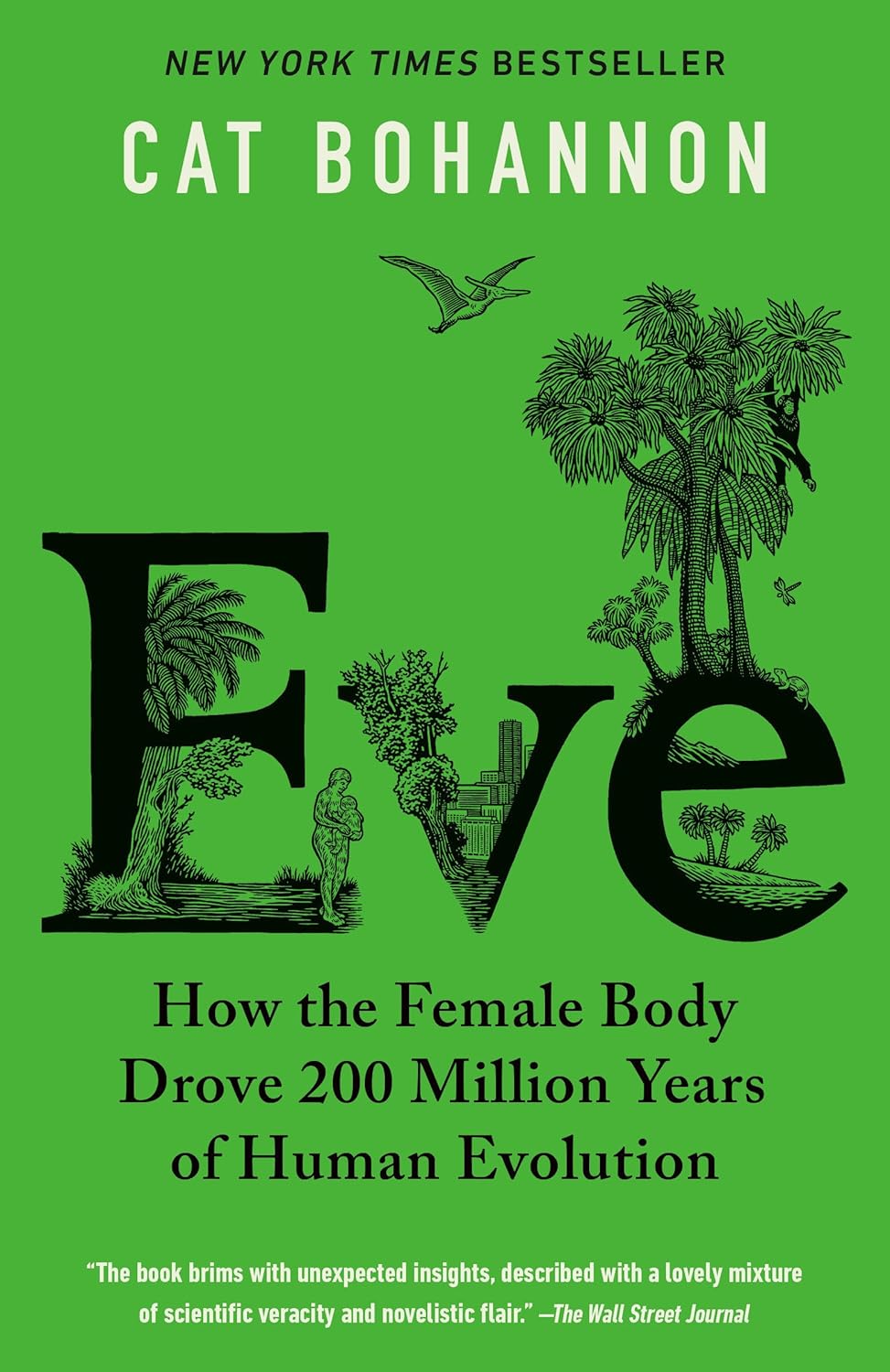Summary | Excerpt | Reading Guide | Reviews | Beyond the Book | Readalikes | Genres & Themes | Author Bio

How the Female Body Drove 200 Million Years of Human Evolution
by Cat BohannonCHAPTER 1
MILK
No sooner had the notion of the Flood subsided,
Than a hare paused amid the clover and trembling bellflowers and
said its prayer to the rainbow through the spider's web...
Blood flowed in Bluebeard's house— in the slaughterhouses— in the
circuses, where God's seal made the windows blanch.
Blood and milk flowed together.
— Arthur Rimbaud, "After the Flood"
Got Milk?
— Ad campaign for the California Milk Processor Board, 1993
There in the soft grass, in the wet crush of evening, she was waiting: furred body shirred with drops of rain, no bigger than a human thumb.
We call her Morgie. Little hunter. One of the first Eves.
She waited at the mouth of her burrow because the sky was still pale—streaky threads of photons refracting through clouds, the deepening blue beyond. She waited because her cells told her to, all the little clocks in her clockwork, and her eyes, and her whiskers twitching in the air, and the temperature of the dirt under her footpads. She waited because there were monsters in the world, and they waited for her, too.
When the night was good and dark, Morgie risked it, skittering along the ground, searching for her prey—insects, some nearly as big as she was. She heard them before she saw them: the high-pitched hum of their wings, the wheezy tapping of their legs. Quick as that, her skinny muzzle snapped. She loved the sweet crunch of its chitinous body, loved the little dribble of fluid down her chin. She licked it off and resumed the hunt. Never safe to
stop. Jaws everywhere. Claws and teeth. The thing that looked like a tree could be a leg; the wind in the ferns could be hot breath. So, she ran, and hunted, and ran, and hid, the wet air heavy as a fist. She flitted over the feet of dinosaurs like a grasshopper hopping an elephant's toe. She felt their low bellows not as a sound so much as an earthquake.
This was life every night for Morganucodon: she who lived
under giants.
When she was tired, she returned to her waiting place, fleeing the gray dawn. She crawled down her tunnel like a lizard, belly dragging over the familiar earth, paws pulling her forward into the close dark of home. The burrow was warm with the soft, radiating heat of her pups, all piled together. Their breath stank of old milk. Scraps of their leathery eggs mildewed gently in the dirt, along with urine and shit and dried spit, the smells mingling in the damp hole she'd dug for her family. A place safe from the monsters that thundered above. Safe enough.
Exhausted, she settled in. Her pups woke, blind and chirping, and swam across one another toward her belly, where beads of milk sweated out of her skin. Each pup jockeyed for the best spot. They slurped her wet fur, faces soon coated in milk. She stretched out on her side, whiskers finding the one closest to her head. Lazily she rolled him over on his back, nuzzling his unrolled ears, his thin eyelids, still closed. She dragged her raspy tongue down his belly to help him defecate, which he couldn't yet do on his own.
The milk and the crap and the egg scraps in that dark little burrow—these are the origins of breasts. Morgie is the real Madonna. Creatures like her nursed their young in a dangerous world, not only to feed them, but also to keep them safe.
To put it in the simplest terms, women have breasts because we make milk. Like all mammals, we nurse our young with a cloyingly sweet, watery goo that we secrete from specialized glands in our torso. Why human breasts are high on our chests, rather than near our pelvis, why we have only two of them instead of six or eight, and why they're surrounded, to varying degree, by fatty tissue that some people find sexually appealing are all questions we'll get to. But at the heart of things, human beings have breasts because we make milk.
Excerpted from Eve by Cat Bohannon. Copyright © 2023 by Cat Bohannon. Excerpted by permission of Knopf. All rights reserved. No part of this excerpt may be reproduced or reprinted without permission in writing from the publisher.
No pleasure is worth giving up for the sake of two more years in a geriatric home.
Click Here to find out who said this, as well as discovering other famous literary quotes!
Your guide toexceptional books
BookBrowse seeks out and recommends the best in contemporary fiction and nonfiction—books that not only engage and entertain but also deepen our understanding of ourselves and the world around us.